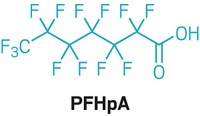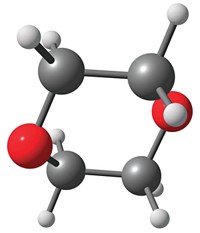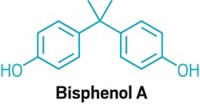Advertisement
Grab your lab coat. Let's get started
Welcome!
Welcome!
Create an account below to get 6 C&EN articles per month, receive newsletters and more - all free.
It seems this is your first time logging in online. Please enter the following information to continue.
As an ACS member you automatically get access to this site. All we need is few more details to create your reading experience.
Not you? Sign in with a different account.
Not you? Sign in with a different account.
ERROR 1
ERROR 1
ERROR 2
ERROR 2
ERROR 2
ERROR 2
ERROR 2
Password and Confirm password must match.
If you have an ACS member number, please enter it here so we can link this account to your membership. (optional)
ERROR 2
ACS values your privacy. By submitting your information, you are gaining access to C&EN and subscribing to our weekly newsletter. We use the information you provide to make your reading experience better, and we will never sell your data to third party members.
Chemical Regulation
Tetraglyme proposed as candidate for regulation in EU
ECHA says plan to restrict dechlorane plus flame retardant expected in April
by Cheryl Hogue
September 3, 2020

A glycol ether sometimes called tetraglyme would become a candidate for tight regulation in the European Union under a proposal pending at the European Chemicals Agency (ECHA).
The substance, tetraethylene glycol dimethyl ether, is used as a solvent or extraction agent in inks and toners, ECHA says.
A proposal from Austria would deem the compound a “substance of very high concern” because it is toxic to reproduction. After a public comment period on the proposal, ECHA will decide whether the chemical qualifies for this categorization and thus become a candidate for strict regulation under the EU Registration, Evaluation, Authorisation, and Restriction of Chemicals (REACH) law.
In a move toward EU regulation of another compound, Norway intends to propose restricting the manufacture, use, and sales of the polychlorinated flame retardant known as dechlorane plus, ECHA says. In 2018, ECHA classified dechlorane plus, which is used in polymers, as a substance of very high concern because it is persistent and bioaccumulative.
Norway’s formal regulatory proposal is expected in April 2021.
Meanwhile, governments are considering restrictions on dechlorane plus under an international treaty, the Stockholm Convention on Persistent Organic Pollutants. The substance has been found widespread in the environment.





Join the conversation
Contact the reporter
Submit a Letter to the Editor for publication
Engage with us on Twitter